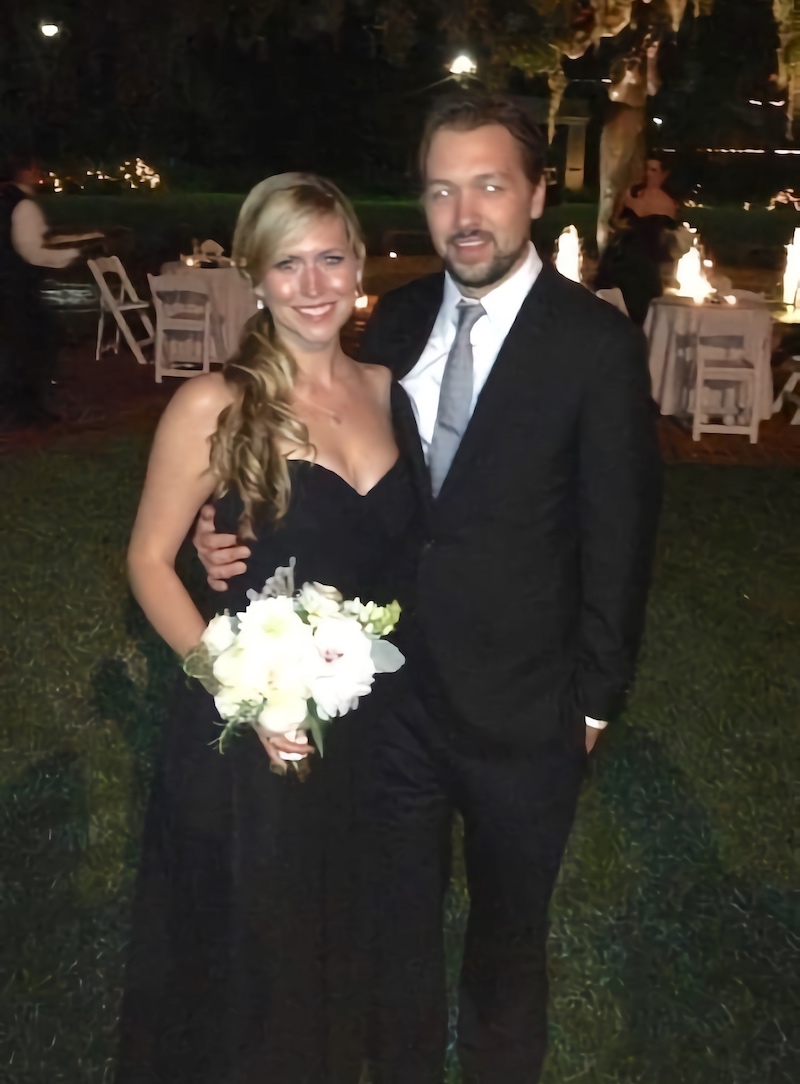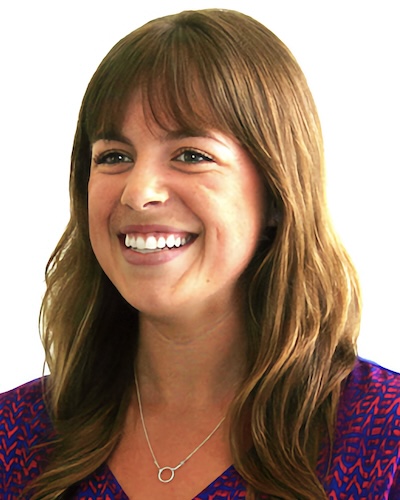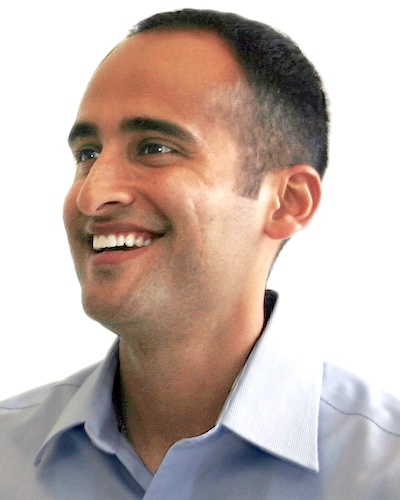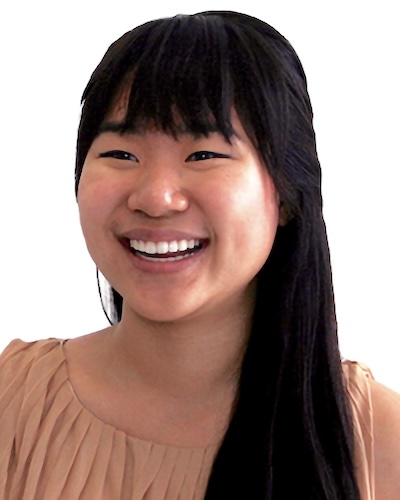Student Blog
What are OS/OT?

OT outside OT school ⟩
November 7, 2012, by Kendra
Community Living in LA What are OS/OT?
Last weekend I attend wedding #527 of the semester in New Orleans. While chatting with the bride’s mother, I learned a dear friend of hers is an occupational therapist who manages a skilled nursing facility in San Antonio, Texas.
Let me meet this girl I said!
It was a really exciting moment for me, getting to ‘talk shop’ with a seasoned professional and hold my ground while doing so. In chatting I discovered she did the validity studies in the early ’90s for the Allen Diagnostic Modules (ADM). Validity and reliability studies are essential for evidence based practice. We need the evidence to show our assessments measure what they say they do (validity) and consistently between testings and different testers (reliability). It just so happens this semester I am interning with one of the developers of the ADM!
It’s moments like these that I am so proud of my education. Not only do I get to go to school with the movers and shakers in the OT world, but Los Angeles is also a city of brilliant and imaginative occupational therapists. I felt, even though I’m still a student, I already have the education to collaborate and work on par with seasoned professionals. Add to that my job as a student ambassador makes attending these kinds of functions; weddings, bridal showers, etc., so much easier to navigate because now I can talk about OT in a clear, succinct way. It was so rewarding getting to offer insight and swap stories with a professional who has been working in the field for 40+ years. And it is especially rewarding to see someone’s internal light bulb go on when they understand the value of an occupational therapist.
This is why USC is #1 in OT!

Also for fun, here’s a picture of me at wedding #527
⋯

OT Global Day of Service ⟩
November 2, 2012, by Paula
Community Getting Involved What are OS/OT?
Last weekend, on October 27th, was the Occupational Therapy Global Day of Service in which occupational therapists worldwide become involved in volunteer efforts in observance of World Occupational Therapy Day. This year, students from USC’s Division of Occupational Science and Occupational Therapy took this opportunity to go out with friends to lend a helping hand while also educating others on the all that the profession has to offer. Students were involved in many different ways for the Global Day of Service.
I was lucky enough to volunteer with an organization called CFY. This group helps families set up their own computer-based Home Learning Center at the beginning of the workshop, learn basic software operations and get hands-on experience using their Home Learning Center to improve reading, writing, and mathematics. In the sessions, we assisted families during the workshop and helped keep the day running smoothly. At the end of the trainings, families pack up their Home Learning Center and take it home. This was a truly humbling experience to be able to volunteer with this group and extremely applicable to occupational therapy as we were enabling families to learn in which was some of their very first exposure to a computer and we were able to give them the tools to interact in an educational manner with their children.
Having grown up in a generation which is so completely engrossed in all things technology, this was an extremely valuable experience for me and a reminder of how different lived experiences can be from one person to the next. I was so excited to participate in this day of service and I am proud of my fellow occupational therapy students and practitioners who also took the time out of their Saturday in order to give back to the community, to pay it forward, and to educate someone else of the importance and applicability of occupational therapy.
⋯

First Session ⟩
November 1, 2012, by Ricky
Fieldwork What are OS/OT?
So, I am currently doing my Pediatric rotation (immersion). Yesterday, I had my first shot at conducting an intervention session. To this point, I had been mostly observing. I have had opportunities to interact with the children, but now, the pressure was on to apply the stuff I have been learning and make the interaction purposeful. My fieldwork educator (FE) had asked that I prepare an intervention plan for a particular child — that had been a few weeks ago. I was actually supposed to do the session last week, but I got sick (honestly, I wasn’t stalling . . . didn’t want to get the little man sick). Anyhow, my session was pretty well-planned, but MAN! It turned out to be a lot more difficult than I expected. I mean, I can interact and play with kids like nothing, but making the interaction therapeutic is really tough. Plus, I have volunteered/worked at a pediatric therapy clinic that operates quite similarly to this place. So, it was a little frustrating when things weren’t flowing as I had hoped. It also didn’t help that the kid’s mom, my FE, and the new OT were all observing me. Needless to mention, things got off to a rocky start and there was a lot of awkward silence. I tried to remind myself that our therapeutic relationship was still new and developing. I tried to let loose and focus more on connecting with the little guy — establish and maintain joint-attention. Things progressed slowly, but they progressed, nonetheless. My therapy plan didn’t completely go out the window, but I definitely made adjustments. Towards the end, things seemed better, and the last 10 minutes or so went by a lot faster. When we were all done, I told my little client, “we survived!” We both took a deep sigh of relief and gave each other a high-five. Haha, he was a good sport. My FE was great at providing feedback and reassured that each session would get easier. I feel like I need tons more experience, but I now there’s light at the end of the proverbial tunnel here. I’m pretty stoked that things started to become more natural later in the session, because I am actually trying to work with kids, upon graduation. This was a relief. Overall, it was a great experience: it was hard and awkward, but I was not defeated. I’m not dreading the next one. I’ll let ya’ll know how it goes in 2 weeks when I try my plan again. Also, I think I need to learn how to sing . . .
⋯

NAMI ⟩
November 1, 2012, by Alisa
Classes Getting Involved What are OS/OT?
One of our assignments for my class was to attend a National Alliance on Mental Illness (NAMI) meeting. I attended a family-to-family support group on Monday, and to be honest, it was a truly eye-opening experience to be able to hear about the families’ lived experience. My attendance at the meeting confirmed my desire to work in the mental health setting. Some of the families in attendance have family members such as sons and daughters, spouses, and siblings who are affected by mental conditions. These conditions include borderline personality disorder, schizophrenia, anxiety, and depression.
I thought the set-up of the meeting worked well where everyone said his or her name and the person in their family living with a mental condition. After the check-in, the two facilitators attempted to problem solve urgent issues first, then they tried to problem solve other issues together as a group as time permitted. The facilitators stated that it was especially hard to know that what we have planned for our family members might not turn out to be exactly as planned. Everyone has come a long way, and by showing up to the meeting is a step toward change. One member shared that how a mental condition affects marriage and now has affected her son. It was comforting for me to learn that despite living with a mental condition, it is still possible to live life to the fullest when paired with medications and therapy. Sometimes it is a “difference between night and day” as one member stated. Some of their loved ones have graduated from universities, but they are now struggling with keeping a job. One member shared that her sibling wanted to get more involved and give back to the community and share what it is like to live with a mental condition and lupus.
As I experienced the meeting, I could empathize with some of the family members whose siblings are living with a mental condition. I felt that the families at the meeting cared about their loved ones, and I have found a place where it is fine to talk about our lived experiences. Although I have chosen not to share about my experiences since I wanted to observe at my first time there, I could see myself returning to the group and learning more from the families there. It has provided me to a valuable learning experience indeed. Some of the group members stated that it was important for them to attend the group because it meant a lot for their loved ones. Some felt that violence was an issue while others attend because they want to find new ways of coping. Some are still going to the grieving process while others have come to terms with their loved ones. All in all, the meeting provided a safe space for anyone to share and learn, and for that, I am grateful that such amazing organizations exist. Go NAMI!
⋯

Career Fair! ⟩
October 25, 2012, by Ricky
Getting Involved What are OS/OT?
Career fair tomorrow folks! So, as a 2nd-year student, this is kinda’ a big deal. 1st-year students are recommended to attend, but it isn’t mandatory. I’ve talked to a few 1st-year students and some are pretty gung-ho about it (which I think I awesome!). Others are on the fence. In my opinion, they should most definitely attend — it’s great practice for next year’s and you never know how long a good first impression might last. While chatting with some 2nd-year students, I was surprised to hear that some were not planning to attend. I was like “what!” I couldn’t believe it. Some of these guys/gals are stellar students too, so I thought, “they probably already got something lined up.” But, no, not the case. One girl said she didn’t feel like making the commute on her day off. To her, and others like her: c’mon guys, what the heck are ya’ll working so hard for!? To get straight A’s!? YOU NEED TO GO TO THIS THING! Grades do not get you jobs. They help, but that’s not all that’s gonna count when it comes getting the job of your dreams. Employers are going to want someone who is solid academically/technically, but who will also contribute to the culture of the organization and fit in well with other employees. Chances are that if you are in OT school at USC, you are pretty well-rounded — what better way to showcase your great qualities than to show up in person and make that good first impression? NETWORKING people — it’s sooo important. There are few opportunities better than this career fair to get your foot in the door. Applying on-line or sending your resume just doesn’t cut it these days. A strong resume is also super important, but look at it this way: resumes don’t get you jobs, they get you interviews; show up to the career fair and it’s almost like a mini-interview. Bring a solid resume and good attitude, and you’re golden. You don’t really have all the pressure of an interview, too — I’ve been to quite a few career fairs in my day (I’m old-er), and I have never been quizzed on-the-spot or anything. If you need to settle the nerves or something, swing by the Division’s table and see how awkward I am . . . I’ll tell you a cheesy joke or something. My routine at career fairs is to actually hit the employers I have the least bit of interest in. This is a great way to prime myself and settle nerves before hitting the employers I really care about. Also, I was once told to feel sorry for the people doing the recruiting or interviewing. If you think about it, there’s a lot of pressure on them to pick the right people. Do you know how expensive it is to hire someone and then not have it work out? See ya’ll at the career fair mañana.
⋯





